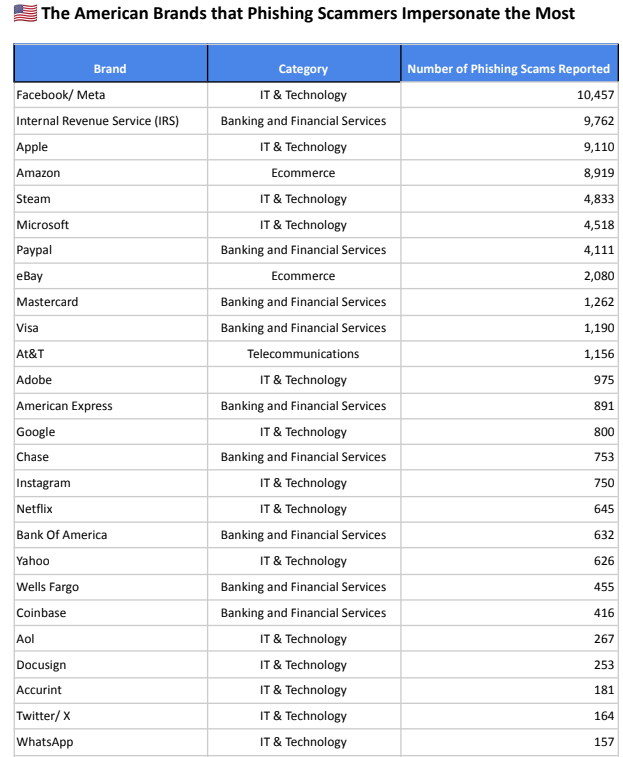Crypto Scam Alert: Report Highlights Coinbase as the Most Impersonated Crypto Brand
Crypto News- In the rapidly expanding Web3 landscape, crypto scams have taken center stage, with Coinbase emerging as the prime target for impersonators and malicious actors. A recent survey sheds light on the alarming trend of impersonation within the crypto space.
Phishing Attacks Targeting Coinbase Soar
Among U.S. crypto firms, Coinbase stands out as the most impersonated brand in phishing attacks, a deceptive tactic aiming to dupe investors into transferring digital assets to fraudulent wallets. According to a Mailsuite report shared with Cointelegraph, there have been a staggering 416 reported phishing attacks leveraging the Coinbase brand over the past four years.
Magnitude of the Scam: Insights from the Report
Analyzing over 1.14 million scams, the report reveals that more than 249,000 incidents involved attackers impersonating legitimate companies or organizations. Coinbase, as the world’s second-largest centralized cryptocurrency exchange, with a daily trading volume exceeding $1.8 billion, remains a lucrative target for scammers.
Trust and Traffic: Coinbase’s Profile
Despite these challenges, Coinbase maintains a stellar trust score of 10/10 and garners over 40.9 million monthly visits, according to CoinGecko data. However, these impressive figures also make it an attractive prey for fraudsters.

Beyond Crypto: Traditional Brands Also in the Crosshairs
While Coinbase leads among crypto firms, traditional finance and technology giants haven’t been spared from impersonation attempts. Bank of America faced 645 phishing attempts, while Mastercard was targeted in 1,262 incidents. Notably, Meta, Facebook’s parent company, bore the brunt with over 10,000 reported scam incidents.

Escalating Concern: The Persistence of Crypto Scams
Despite efforts to bolster security measures, crypto scams continue to proliferate, underscoring persistent vulnerabilities within the industry. A Crystal Intelligence report, shared with Cointelegraph, reveals a staggering $19 billion in losses across 785 reported hacks and exploits over the past 13 years.
A Costly Reality: Notable Theft Cases
Among these, the infamous Plus Token fraud of 2019 remains the largest single crypto theft case, with attackers siphoning off $2.9 billion worth of Bitcoin and Ether. Such incidents erode trust and impede mainstream adoption, posing formidable challenges to the crypto ecosystem’s evolution.
Facing the Future: Heightened Vigilance Required
As crypto hacks and exploits continue to escalate, surpassing previous years’ figures, heightened vigilance and robust security measures are imperative. The first quarter of 2024 alone witnessed a staggering $542.7 million in stolen funds, signaling an urgent need for concerted action to safeguard investors and bolster industry resilience.
FAQ
What is the Web3 space, and why is it relevant to crypto scams?
The Web3 space refers to the decentralized web, where blockchain technology plays a significant role in enabling peer-to-peer interactions without the need for intermediaries. Crypto scams often target platforms and services within this space due to the anonymity and lack of central authority, making it easier for scammers to exploit unsuspecting users.
For more up-to-date crypto news, you can follow Crypto Data Space.
















Leave a comment